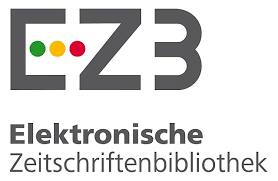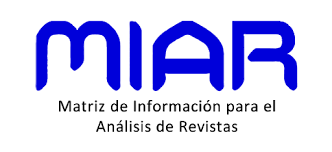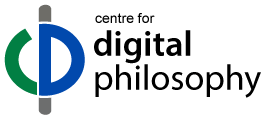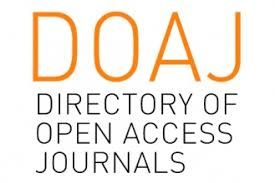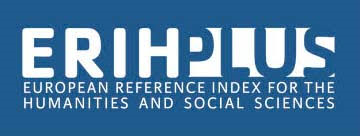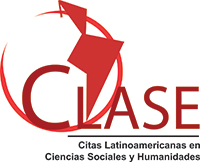Responsabilidade Moral Razoável
DOI:
https://doi.org/10.15448/1984-6746.2014.1.14468Palavras-chave:
Responsabilidade. Coerentismo. Razoabilidade.Resumo
O principal objetivo desse artigo é responder a questão sobre o que constitui a responsabilidade moral. Tentaremos demonstrar que a responsabilidade moral tem duas características centrais, a saber, exigências internalistas e autoridade social. Para tal propósito, faremos uso de estratégias compatibilistas. O próximo passo será tentar descrever a concepção de responsabilidade substancial de Thomas Scanlon e, no final desse artigo, estipularemos um argumento sobre um tipo de responsabilidade moral razoável que pode estar contida na teoria da justiça como equidade de John Rawls.
Downloads
Referências
ARISTÓTELES. Ethica Nicomachea. Ed. I. Bywater. Oxford: Oxford University Press, 1894 (Reimp. 1962).
______. Nicomachean Ethics. Transl. Terence Irwin. 2. ed. Indianapolis: Hackett, 1999.
AUDI, Robert. Moral Knowledge and Ethical Character. New York: Oxford University Press, 1997.
DENNETT, Daniel. Freedom Evolves. New York: Viking Penguin, 2003.
DWORKIN, Ronald. Justice for Hedgehogs. Cambridge, Mass.: Harvard University Press, 2011.
EHRENFREUND, Max. “Cleveland Kidnapping victims Amanda Berry, Gina DeJesus, Michelle Knight post video”. The Washington Post, July 9, 2013.
FEINBERG, Joel. “Problematic Responsibility in Law and Morals”. The Philosophical Review, v. 71, n. 3, 1962, p. 340-351.
FISCHER, John Martin; RAVIZZA, Mark. “Responsibility and Inevitability”. Ethics, v. 101, n. 2, 1991, p. 258-278.
FRANKFURT, Harry. “Freedom of the Will and the Concept of a Person”. The Journal of Philosophy, v. 68, n. 1, 1971, p. 5-20.
KANT, Immanuel. Groundwork of the Metaphysics of Morals. Trasl. Mary Gregor. New York: Cambridge University Press, 2010.
KORSGAARD, Christine. The Sources of Normativity. New York: Cambridge University Press, 1996.
MEYER, Susan. “Aristotle on the Voluntary”. In: KRAUT, Richard (Ed.). The Blackwell Guide to Nicomachean Ethics. Oxford: Blackwell, 2006, p. 137-157.
NAGEL, Thomas. “Moral Luck”. In: Mortal Questions. New York: Cambridge University Press, 1979, ch. 3. Rep. in:
STATMAN, Daniel. Moral Luck. New York: State University of New York Press, 1993, p. 57-71.
______. The View from Nowhere. Oxford: Oxford University Press, 1986.
NOWELL-SMITH, P. “Freewill and Moral Responsibility”. Mind, New Series, v. 57,
n. 225, 1948, p. 45-61.
PETERS, Mark. “Ariel Castro, man who held 3 women captive, found dead”. The Wall Street Journal, Sept. 4, 2013.
RAWLS, John. (1971). A Theory of Justice. Revised Edition. Cambridge, Mass.: Harvard University Press, 1999.
______. “The Domain of the Political and Overlapping Consensus”. New York University Law Review, v. 64, 1989, p. 233-255. Rep. in: RAWLS, J. Collected Papers. Cambridge, Mass.: Harvard University Press, 1999, p. 473-496.
______. Political Liberalism. New York: Columbia University Press, 1996.
SCANLON, Thomas. What We Owe to Each Other. Cambridge, Mass.: Harvard University Press, 1998.
______. Moral Dimensions: permissibility, meaning, blame. Cambridge, Mass.: Harvard University Press, 2010.
SKINNER, B. F. The Behavior of Organisms: an experimental analysis. New York: Appleton Century-Crofts, 1938.
STRAWSON, Galen. “The Impossibility of Moral Responsibility”. Philosophical Studies, v. 75, n. 1/2, 1994, p. 5-24.
STRAWSON, Peter. “Freedom and Resentment”. Proceedings of the British Academy, v. XLVIII, 1962. Rep. in: STRAWSON, P. Freedom and Resentment and Other Essays. London: Routledge, 2008, p. 1-28.
WALKER, Tim. “Ariel Castro sentenced to life plus 1,000 years in prison for abduction of Amanda Berry, Gina DeJesus and Michelle Knight”. The Independent, 01 Aug. 2013.
WILLIAMS, Bernard. “Moral Luck”. In: Moral Luck: philosophical papers 1973-1980. Cambridge: Cambridge University Press, 1981, p. 20-39.
______. Ethics and the Limits of Philosophy. Cambridge, Mass.: Harvard University Press, 1985.
Downloads
Publicado
Como Citar
Edição
Seção
Licença
Direitos Autorais
A submissão de originais para a Revista Veritas implica na transferência, pelos autores, dos direitos de publicação. Os direitos autorais para os artigos publicados nesta revista são do autor, com direitos da revista sobre a primeira publicação. Os autores somente poderão utilizar os mesmos resultados em outras publicações indicando claramente a Revista Veritas como o meio da publicação original.
Licença Creative Commons
Exceto onde especificado diferentemente, aplicam-se à matéria publicada neste periódico os termos de uma licença Creative Commons Atribuição 4.0 Internacional, que permite o uso irrestrito, a distribuição e a reprodução em qualquer meio desde que a publicação original seja corretamente citada. Copyright: © 2006-2020 EDIPUCRS





